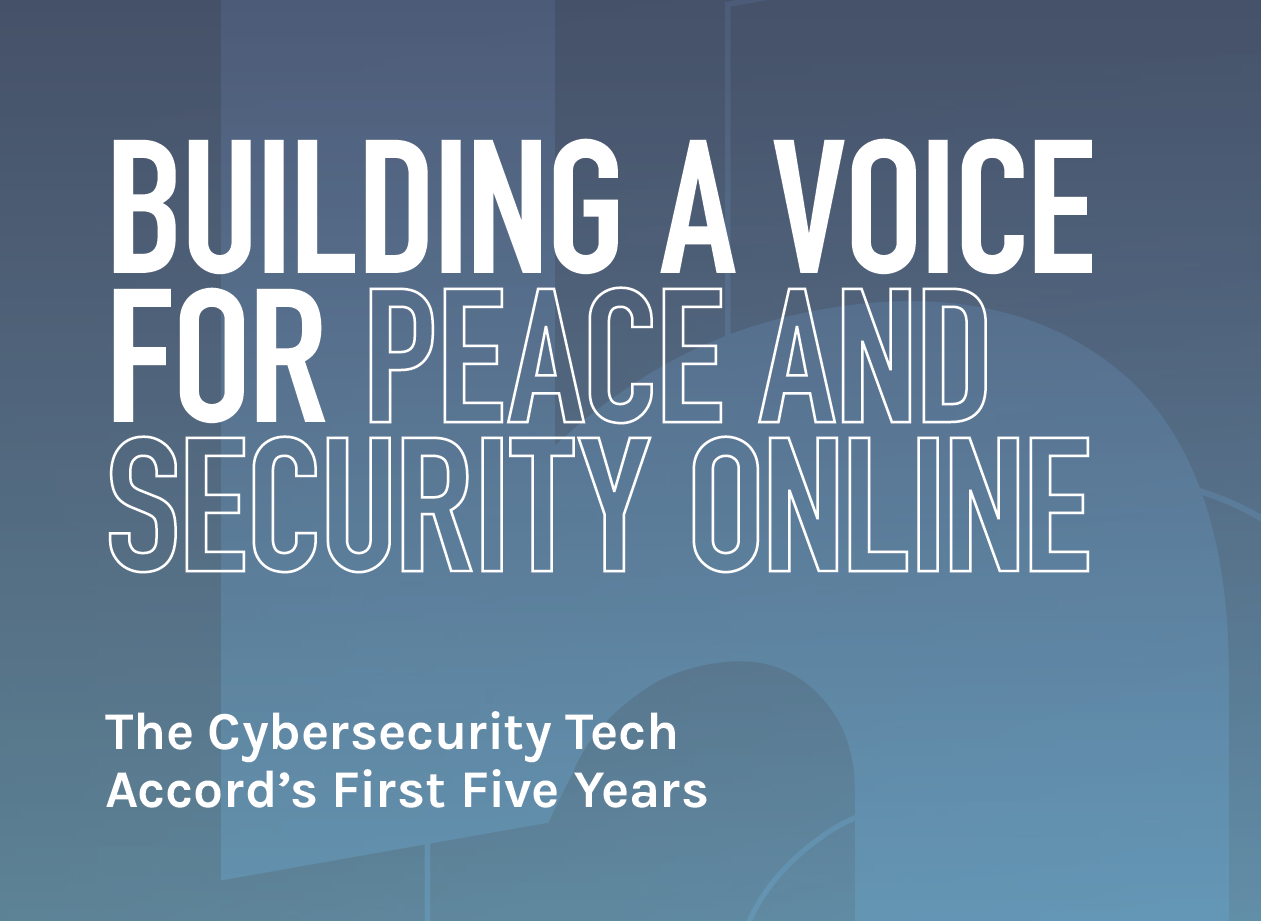April 2023 marks an important milestone for the Cybersecurity Tech Accord: the five-year anniversary of our coalition. In 2018, 34 global technology and security companies first signed the Cybersecurity Tech Accord at a gathering in San Francisco, launching a groundbreaking commitment to defend all customers everywhere from malicious attacks by cybercriminal enterprises and nation-states.
We’ve come a long way since then, with now 156 signatories and countless engagements and consultations with governments, civil society, and private sector partners over the years, advocating for responsible behavior and a larger role for the technology industry in deliberations around international cybersecurity. In the past five years, the cybersecurity landscape has changed dramatically as the world has become ever more connected by digital technology. Citizens everywhere today face increasing cyber risk and escalating numbers of sophisticated cyberattacks. Meanwhile the international system is reconciling with the first large-scale example of cyber warfare and worrying market trends which are putting lives on- and offline at risk.
The second [Tech Accord] principle [most aligns with our company’s values], “We will oppose cyberattacks on innocent citizens and enterprises from anywhere”, as it follows our mission to make the world safe.
Ed Cabrera, Chief Cybersecurity Officer, TrendMicro
With this in mind, to mark our fifth anniversary we are reflecting on the Tech Accord’s achievements, how the threat landscape has evolved, and the opportunities that lie ahead for our industry. Today, we are proud to publish our anniversary report: “Building a Voice for Peace and Security Online: The Cybersecurity Tech Accord’s First Five Years”. In line with our commitment to report publicly on our progress in achieving our goals, our new report provides a comprehensive review of our activity over the past five years, highlighting our most impactful initiatives and partnerships.
The Tech Accord is unique in its aim to accelerate the implementation and improvement of cybersecurity globally, through the participation of businesses, governments, and individuals.
Alejandro Becerra, Group Information Security Director, Telefonica
The Report also includes a new section, one that the Cybersecurity Tech Accord now commits to updating every year moving forward: The State of International Cybersecurity Thermometer. The Thermometer is an assessment made by our industry community taking stock of the current state of conflict and cybersecurity around the world and how it has changed in the past year. Our assessment considers current geopolitical tensions, Russia’s extensive use of cyber weapons in Ukraine, and risks from rising market practices like cyber mercenaries. As a result, in this first evaluation we have determined the “state of cyber conflict” in 2023 has reached a meaningful and worrying point of inflection that we are recognizing as a metaphorical “boiling point” of 100°C. We detail our reasoning in the report, as well as in an upcoming blogpost that will be posted on our website later this week.
Multistakeholder, private-sector-led initiatives like the Cybersecurity Tech Accord have played an important role in supporting the promotion and operationalization of international norms for responsible State behavior. Broad stakeholder engagement has been and will continue to be critical to ensuring the peace and security of cyberspace.
Katherine Prizeman, Political Affairs Officer, Science, Technology and International Security Unit, United Nations Office for Disarmament Affairs (UNODA)
To mark the celebrations, the Cybersecurity Tech Accord will also be hosting an event open to the public on 25 April 2023, alongside the RSA Conference in San Francisco. Our anniversary event will give us a chance to hear from leaders from across our signatories, as well as from government and civil society, on the accomplishments of the past five years and what will be needed in the years to come from industry, and all stakeholders, to push back on escalating conflict and emerging challenges in cyberspace.

